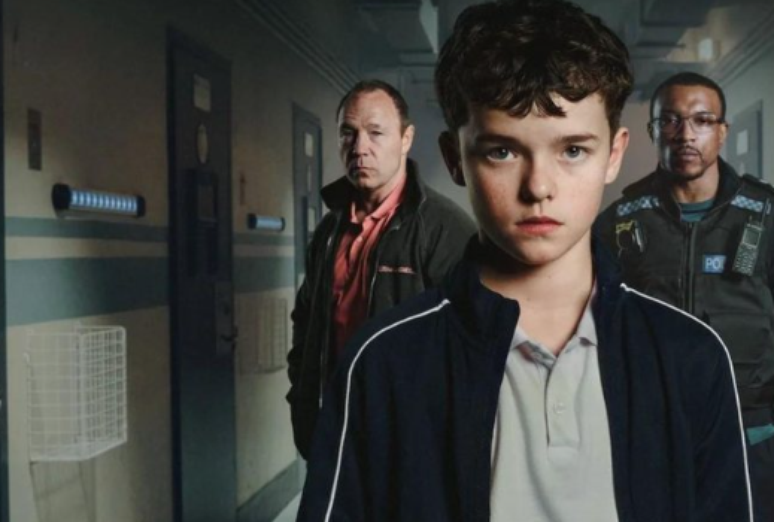Understand the importance of emotional education for teenagers in the light of Netflix’s adolescence series and learns to help young people
The series Adolescence He puts us in touch with the reality of many teenagers who, apparently, apparently, are immersed in a digital world that incites violence and prejudice. As a therapist specialized in children and young people, I must underline the importance of Emotional education for teenagers.
The character of the series commits crime, for example, has no evident signs of psychopathy, but of a young man looking for acceptance. He gets lost in his frustrations, being involved with other teenagers who share their pain and their resentment.
THE Emotional education for teenagers It may have been the key to this young man to have other alternatives to face his emotions and frustrations.
This is how I always repeat the African saying in my care and in my groups that guide: It takes an entire village to grow a child. “
✅ Join the Personal Therastes group on WhatsApp and receives more content like this
What parents do not see: the role of emotional education for teenagers
On the one hand, teenagers spend more and more time on social networks. On the other hand, Internet opens a portal for numerous possibilities, but not all of them are healthy.
Teenagers, looking for validation and belonging, can be involved in groups that encourage hatred speeches, fueling resentment and frustrations.
Without adequate emotional education, teenagers can increase the pain they feel, making it a spiral of suffering, which is difficult to interrupt.
Many parents do not realize that their children navigate for a sea of emotions they don’t know how to deal with. The adolescent brain is still being developed and its ability to elaborate emotions and make mature decisions around 25 years of age.
This means that Emotional education for teenagers It becomes essential to understand and express your emotions in a healthy way.
Many teenagers do not feel comfortable to talk about what they are experiencing and this silence generates disconnecting with the family. Instead of looking for support, many are echoed in groups or communities that feed only their pains.
The lack of support at home or school can intensify these feelings, leading them to get lost in a virtual world of Cyberbullying.
Read also the adolescent series:
- How to teach men how to love women?
- Signs of suffering in adolescence: reflections of the Netflix series
The importance of recognizing the internal world of teenagers
Each person has a temperament – Could be Choleric neck and blood (extroverted) and melancholy and phlegmatic (introverted). And this influences directly the way they express themselves.
For example:
- Introverted They may not be able to express what they feel or do not feel understood.
- A very shy teenager O difficulties in social relations can make them feel excluded, without realizing how rich their inner world is.
Here’s where the Emotional education for teenagersTo help arouse this perception and a consequent expression.
Activities such as art, dance or awareness are powerful forms that young people express themselves without fear of judgment.
I have already carried out various activities with teenagers, such as Trying for peace constructionA supplementary practice that facilitates dialogue in safe spaces.
Therefore, during these activities, young people can speak openly about their feelings, something that may have never done at home or school.
Healthy alternatives to face emotions
It is essential that teenagers are presented to healthy alternatives to face their emotions, fears and anxieties. THE Emotional education for teenagers It can be developed through supervised activities, such as:
- groups of young people
- Trying for peace construction
- Awareness practices
- Guided meditation
- sport
- Body movement, how to dance
These activities not only reduce anxiety, but also increase self -phids and improve self -esteem. They help young people manage their frustrations and find a way to express themselves without resorting to hatred or violence.
Freedom with responsibility
Today’s teenagers have more freedom of previous generations, but this freedom must be accompanied by responsibility.
Just like Alice, from Alice in WonderlandHe asks the cat: “How should I go?” Many young people are also lost without knowing where to go.
It is at this moment Emotional education for teenagers Enter as a vital tool to give them the necessary support to make healthy decisions.
The role of adults in the process
The part of the brain that deals with the logical reasoning and the notion of danger matures only about 25 years. This means that teenagers do not yet have complete maturity to face all the situations they face.
It is therefore essential that adults – parents, educators, psychologists – act as guides in this emotional development process.
When we don’t know what to do, the best way is to look for the help of a professional. And above all, it is important to welcome young people with respect, affection and patience.
- An affectionate hug
- A careful ear
- A heart open to listen to without judgments
These are essential elements to build a healthy environment.
The importance of welcome and love
What the series teaches us is that more than ever, we have to look at our children, teenagers and young people and see beyond appearances. They need authority, but not authoritarianism.
They need freedom, but responsibly. And above all, they need a lot of love and welcome.
Emotional education for teenagers It is the key to building a healthier and more balanced future for young people. Helping them to develop emotional intelligence and communication skills is essential to be able to face adolescence challenges in a healthier and more conscious way.
In consultation Awaken your potentialIn addition to identifying the temperament and seeing healthy ways to face it, the teenager is welcomed and learns healthy ways to face his frustrations and arouse his potentials.
The post Emotional education for teenagers: what the teenasce series appeared first in Personade.
Andrea Leandro (andrelis.2@gmail.com)
– Andrea Leandro is an supplementary therapist (flowers, reiki, emotional management and cerebral gymnastics), Veng Shui harmonization consultant (Feng Shui, Geobiology, Radion Table and Radiasthesia), Brain Gym® and yoga instructor for children and adolescents.
Source: Terra
Ben Stock is a lifestyle journalist and author at Gossipify. He writes about topics such as health, wellness, travel, food and home decor. He provides practical advice and inspiration to improve well-being, keeps readers up to date with latest lifestyle news and trends, known for his engaging writing style, in-depth analysis and unique perspectives.









